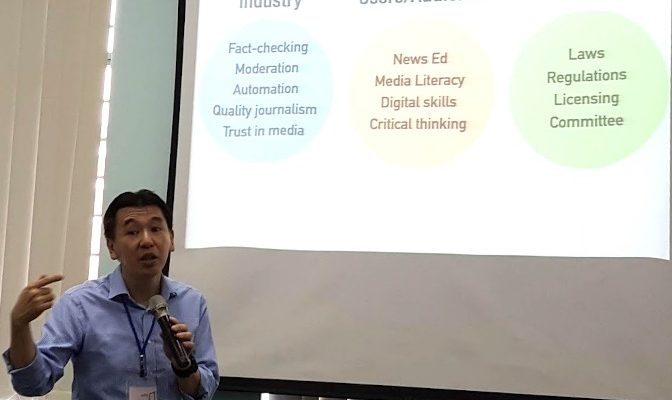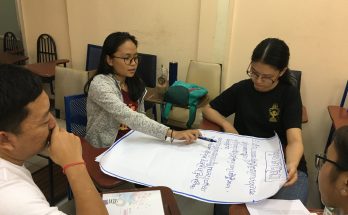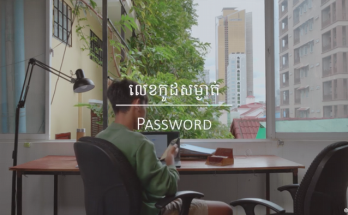With the hike of digitalization across the globe, traditional media is not the only channel for distribution and consuming information. Everyday, social media platforms are flooded with filtered and/or unfiltered, verified and/or unverified information appeared as news. As the speed of distribution is much more accelerated than traditional platforms, the accuracy of shared information needs to be paid more attention than ever. Traditionally, media has its obvious role for fact-checking. However, with the growth of various online platforms serving as information outlets, the question arises who has responsibility to fact-check.
There has been on-going discussions and debates in the journalism field regards to reporting news ethically and factually especially for online—converging media. Nowadays, rampant of misinformation and disinformation that stirred up disharmony in society draws greater attention for media and journalism as a whole in revisiting on “fact-checking”, which is a new global phenomenon.
As International Fact-Checking Day falls on April 2, Fojo Media Institute contacts Dr. Masato Kajimoto for his comments on the topic. Masato is an Assistant Professor of Practice at Journalism and Media Studies Centre (JMSC) of the University of Hong Kong. He is also a research specialist on news literacy education and misinformation ecosystem in Asia, founder of “Strapline: News Literacy for the Rest of Us”. In 2018, Masato published “Information Disorder in Asia and the Pacific”, a research paper with a series of short articles. The paper focused on mapping nine countries and their own fake news problems, and highlighting noteworthy factors of spreading misinformation and disinformation.
Up-to-day, Masato has been relentlessly working, and paying great attention to news literacy trainings and fact-checking support for journalists across Southeast Asia (Vietnam and Myanmar), and Asia.
Fojo: Before talking about fact-checking, can you explain what is “news literacy”? How news literacy is related to fact-checking?
Masato: News literacy is an ability to critically judge the reliability and credibility of information no matter where it comes from, be it a chat app, social media, video, or print. Therefore, lessons in news literacy education include practical skills to use digital tools and verification techniques; hands-on fact-checking is a big part of news literacy training.
Fojo: In journalism, checking information is a ‘must’, but why are we emphasizing a need for an additional ‘fact-checking’?
Masato: Because people are bypassing journalism to disseminate information to the public. Politicians, big corporations, celebrities, and other newsmakers have means to communicate directly with their target audience through social media and other channels. Information spreads far and wide without the intervention of journalism. Ex post factchecking to authenticate what people already saw, read, or heard, has become a big part of journalism in today’s digital world.
Fojo: In terms of fact-checking capacity, what challenges do you observe for Southeast Asia media and journalism field?
Masato: Fact checking can be resource intensive without much rewards and that’s a universal issue. Specifically in Southeast Asia, limited press freedom can be a major hurdle as well, especially when journalists try to verify political claims or the information from the government.
Fojo: Often, people response saying fact-checking is responsible solely to journalists and media. In your view, who else needs to fact-check their information before they use or share?
Masato: We should not forget that people don’t always get news from journalism, especially on the internet. News audience needs to know how to fact check information. Faulty news with bogus information travels fast and thus, everyone has to learn the skills. No one wants to be a chump who gets tricked or manipulated, right?
Fojo: What do you suggest for media training institutes in Southeast Asia to prepare and counter this global fact-checking phenomenon?
Masato: We need to look at both the supply and demand sides. On the supply side, we need to train journalists who could produce reliable, quality content that people can rely on. On the demand side, we need to teach how to be a smart, discerning news audience who could identify falsehood and appreciate quality journalism.
Fojo: One last thing to clarify, as these two terms are always in confusion. How is “news literacy” different from “media literacy”?
Masato: I don’t want to drag you into the “definition war” that often happens in the academic world, but simply put, we differentiate news literacy from the traditional media literacy approach because it is razor-focused on news and journalism. There are a lot of overlaps, of course, and they both teach how to apply critical thinking skills when consuming media content. But news literacy instructions pay more attention to the veracity and reliability of information in media messages whereas media literacy instructions put more emphasis on decoding the meaning of media messages created with the information.
Fojo: What can/should media development organizations work on news literacy and fact-checking issues in this region?
Masato: There are lots of initiatives and efforts in this field across Asia, but it seems there is little coordination or collaboration among various stakeholders. Granted, we speak different languages, our political systems vary greatly, and our media landscapes are diverse, but when it comes to news literacy and fact checking, we have the same or similar goals. I think media development organizations should work together more closely instead of trying to re-invent the wheels on their own.
——————————————————-
This interview is originally published on Fojo Media Institute on 02 April 2019. Nai Nai from Fojo Media Institute compiled this interview via email correspondent on 28 March 2019. CCIM is a member of the Southeast Asia Media Network, a regional network of media training organizations supported by Fojo.




